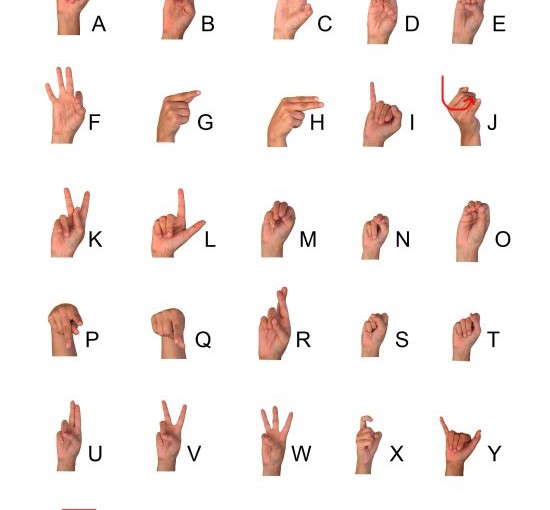Originally published March 2016
Updated April 2024
If you refer to your child as having “special needs” instead of having a “disability” you would not be alone. Many schools refer to some classrooms as “special education” not “disability education.” So, it is only natural that parents would follow suit.
Below you will read about an unscientific experiment I conducted a few years ago. I wanted to understand if my perception of the words, “special needs,” or “disability,” has an implied stigma for people with challenges.
Parents of children with a disability might say that referring to their child as having “special needs” sets the tone for the conversation. Think about a time when you told someone your child has “special needs.” Chances are you were met with a sympathetic tone and perhaps even, “I’m so sorry.” To be honest, I don’t know why anyone would apologize for the fact that someone else has a child living with any type of challenge. I like to believe that people want to be supportive, but most don’t know what to say. In my opinion, the term “special” encompasses a wide variety of neurological concerns. Often people equate “special” with a child being “autistic.” Hence, the need for my social experiment.
Disclaimer
Ordinarily, I would not share anything about my kidlet to strangers, but I did tell him about my plans and he was in agreement. He mentioned he always hated the word “special” because some kids in school would automatically think he was a “retard.” (Now there is a word from the past) *The data and analysis are included for the sole purposes of the experiment and any medical history is not implied.
The experiment
I spoke with a total of 10 people; 3 were parents of children with a disability, 4 were staff from a local government agency, and 2 were friends (not close friends) and 1 an acquaintance. It is important to note, that this experiment was observational, but for the purposes of the responses, individuals were split into 2 groups of 5 people each.
Respondents
The first group, referred to as our “special” group, included 2 government staff members, 2 parents of child with a disability, and 1 friend.
The second group, referred to as our “disability” group, consisted of 2 government staff members, 1 parent of a child with a disability, 1 friend, and 1 acquaintance.
Data collection method:
Within the context of a normal conversation with all these people, the respondents in group one were told, “I have a child with special needs.” For the respondents in group two, I said, “I have a child with a disability.”
Data analysis and conclusion
For group one, when I said I had a child with ‘special needs,” there seemed to be an underlying sympathetic tone. Most respondents in this group seemed concerned, but both government staff workers immediately asked what type of medication he was on. Both parents were equally concerned but one interestingly enough asked the range of autism; meaning mild, moderate, or severe. The friend said, “I’m so sorry, I didn’t know” and then proceeded to tell me about a co-worker who has a child with Autism. Further, this friend went on to tell me about various agencies I could call for help; this friend does not have a child with any type of neurological challenges.
For group two, I mentioned I had a child who has a “disability.” In this instance, the respondents seemed interested but did not appear sympathetic. The two government workers asked about physical limitations but asked no questions about medication. The parent was concerned and asked if he could drive which told me that she might be having the same challenges with her own child; she did not elaborate and I did not ask. The other friend, changed the subject after saying she herself had a disability. The acquaintance asked very curiously, “what’s wrong with him?”
During all conversations, I mentioned to each respondent, “he learns differently.” With that statement for group one, most still had the idea that my child had neurological challenges beyond our control and the term “learns differently” only seemed to add more ambiguity to my son’s diagnosis.
Interestingly enough, when I told the members in group two, “my son learns differently” it seemed to peak their curiosity but in a positive way. One friend responded, “Oh, really, that’s interesting. How does that work”?
In comparison of both groups, I also studied the body language when I provided information about my child. I am not a body language reader, but some movements were obvious. Most people in group one responded with a sigh and became very serious in their facial expressions. They seemed genuinely concerned and offered me help. Even the phone conversations took a more somber tone. The respondents in group two were much more upbeat and curious as evidenced by my friend wanting to understand the term “learns differently.” Clearly the words “special needs” brought about emotion and sympathy. Also very clear, were the reactions to the words “disability.” That seems to encompass a wide array of conditions, but it appeared that many did not associate anything serious by me using this word. This is good, because many kids don’t want people to feel sorry for them. They just want to be like everyone else.
Changing stereotypes
Recently, I came across some examples of People First Language on a government website. This website communicates how words can change the perception some people have about people with a disability. Children with special needs are kids first and so are kids with a disability.
After having completed this experiment, and witnessing the reactions people have, it is hard now for me to even allow the words “special needs” to flow from my mouth when referring to my own kidlet. I think it sends the wrong message to people. We have the power to change it and we have the power to change the way others see our children.
Photo credit: Start-american-sign-language.com




Let’s Talk!